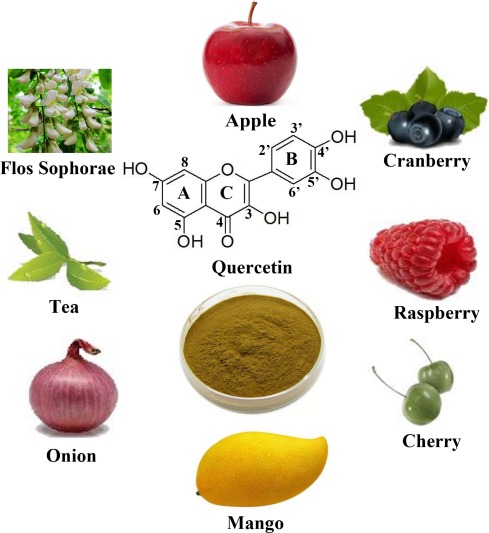Quercetin vs Hydroxychloroquine: What's the Difference? (2024)
As of April 2024, there are more than 4,000 studies (R) published related to the treatment and prevention of COVID-19.
If you are still confused about the recommendations made by different professional groups for the COVID-19 pandemic, you've come to the right place.
The number of options for the treatment of COVID-19 has increased drastically in recent months, thus making it complicated when it comes to choosing the right combination. In general, there are 3 broad categories of medical interventions:
Hydroxychloroquine is among the handful of COVID-19 treatments that are being studied as potential candidates that might influence the outcome in the management of COVID-19. According to a real time meta-analysis of more than 200 studies, early treatment is most successful.The number of options for the treatment of COVID-19 has increased drastically in recent months, thus making it complicated when it comes to choosing the right combination. In general, there are 3 broad categories of medical interventions:
- Prevention or Prophylaxis e.g. vaccine
- Early out-patient treatment
- Hospital treatment
The various treatments available for different conditions often involve the use of complex technologies and specialized terminology, which can be overwhelming and confusing for consumers. To achieve the best possible outcome, multiple treatments and strategies are typically used in combination. Therefore, it's important to work closely with your healthcare provider to understand the different options available and determine the best course of action for your specific needs.
Hydroxychloroquine and Quercetin are all zinc ionophores. Meaning they all transport zinc into the cells.
We will dive deeper into the science for each of them.
Quercetin and COVID-19
Quercetin and zinc are part of the FLCCC and Zelenko protocols for the prevention and early treatment of COVID-19. As of April 2024, there have been more than 10 published studies of quercetin against COVID-19. For the list of studies, check out c19quercetin.com.
Quercetin acts as a zinc ionophore (PubMed 2014), the same mechanism of action that hydroxychloroquine has via helping zinc pass the cell wall where it might halt viral replication.
There is evidence that vitamin C and quercetin co-administration exerts a synergistic antiviral action due to overlapping antiviral and immuno-modulatory properties and the capacity of ascorbate to recycle quercetin, increasing its efficacy.
This zinc ionophore activity of quercetin facilitates the transport of zinc across the cell membrane. It is known that zinc will slow down the replication of coronavirus through inhibition of enzyme RNA polymerase (PubMed 2010). The COVID-19 is an RNA (RiboNucleicAcid) virus and requires the RNA polymerase to replicate. Do take note that the study publication was a 2010 publication and is referring to a different coronavirus as compared to the latest coronavirus (COVID-19); though both are from the same family of coronaviruses.
An animal study published in the Nature (Aug 2012), concluded that quercetin has anti-oxidant, anti-inflammatory and anti-fibrotic (anti-scarring) properties. Another study (JCI May 2012) on rutin (quercetin molecule bound to a sugar molecule called rutinose), commonly found in fruits and vegetables and sold over the counter as a dietary supplement, has been shown to inhibit the formation of blood clots in an animal model of thrombosis.
A review published in The Sage Journal (Dec 2020), summarizes the antiviral significance of quercetin and proposes a possible strategy for the effective utilization of natural polyphenols in our daily diet for the prevention of viral infection.
Quercetin, Zinc and Vitamin C
Incidentally, ascorbic acid (vitamin C) and the bioflavonoid quercetin (originally labeled vitamin P) were both discovered by the same scientist — Nobel prize winner Albert Szent-Györgyi. Quercetin and vitamin C also act as an antiviral drug, effectively inactivating viruses.
There is evidence that vitamin C and quercetin co-administration exerts a synergistic antiviral action due to overlapping antiviral and immuno-modulatory properties and the capacity of ascorbate to recycle quercetin, increasing its efficacy.
Quercetin is also part of the FLCCC I-Prevent and I-Care protocols for COVID-19.
Related:
Caution: Quercetin has one moderate drug interaction with warfarin. Do not take quercetin without medical advice if you are using warfarin (blood thinner).
Hydroxychloroquine and COVID-19
COVID patients who were treated with hydroxychloroquine were less likely to die than those who weren't, according to a November 2023 study.
Just 0.8 percent of patients at a facility in France who received hydroxychloroquine (HCQ) and an antibiotic died, compared with 4.8 percent of patients who didn't receive the drug combination, French researchers reported on Nov. 1, 2023.
Just 0.8 percent of patients at a facility in France who received hydroxychloroquine (HCQ) and an antibiotic died, compared with 4.8 percent of patients who didn't receive the drug combination, French researchers reported on Nov. 1, 2023.
Historically, hydroxychloroquine was discovered during efforts to synthesize alternatives to quinine as anti-malarials. Is quinine similar to hydroxychloroquine? Hydroxychloroquine and quinine are both anti-malarial drugs. However, hydroxychloroquine is not the same as quinine as hydroxychloroquine is a synthetic drug while quinine is a naturally occurring compound found in cinchona bark.
Quinine, was first recognized as a potent antimalarial agent hundreds of years ago. Since then, the beneficial effects of quinine and its more advanced synthetic forms, chloroquine and hydroxychloroquine, have been increasingly recognized in a myriad of other diseases in addition to malaria.
Is quercetin same as quinine? No. Quercetin is a phytonutrient whereas quinine is a naturally occurring compound found in cinchona bark and was used as an antimalarial agent. However, both quercetin and quinine are known to have zinc ionophore properties i.e. they transport zinc into the cells.
Hydroxychloroquine, developed in the 1950s from chloroquine, an old anti-malarial drug, is registered in around 60 countries under trade names such as Plaquenil, Quensyl and Plaquinol.
Hydroxychloroquine, developed in the 1950s from chloroquine, an old anti-malarial drug, is registered in around 60 countries under trade names such as Plaquenil, Quensyl and Plaquinol.
Hydroxychloroquine, a less toxic derivative of Chloroquine is a widely used medication by people with lupus or arthritis.
Hydroxychloroquine (HCQ) is not effective when used very late with high dosages over a long period, effectiveness improves with earlier usage and improved dosing. Early treatment consistently shows positive effects. Negative evaluations typically ignore treatment time, often focusing on a subset of late stage studies.
As of April 2024, there are more than 350 published evidence of hydroxychloroquine for COVID-19 (c19hcq.org).
Do you need a prescription for hydroxychloroquine?
Yes, hydroxychloroquine is a prescription drug and you do need it to be prescribed to you by a doctor.
Related: Find a Doctor who will prescribe Hydroxychloroquine
Related: Find a Doctor who will prescribe Hydroxychloroquine
As of February 2024, there are more than 350 published evidence of hydroxychloroquine for COVID-19 (c19hcq.org).
Do you need a prescription for hydroxychloroquine?
Yes, hydroxychloroquine is a prescription drug and you do need it to be prescribed to you by a doctor.
Related: Find a Doctor who will prescribe Hydroxychloroquine
Related: Find a Doctor who will prescribe Hydroxychloroquine
Hydroxychloroquine vs Quercetin
Hydroxychloroquine and Quercetin are both zinc ionophores i.e. they transport zinc into the cells.
However, quercetin is less potent than HCQ (hydroxychloroquine) as a zinc transporter, and it does not reach high concentrations in lung cells that HCQ does. Quercetin may help reduce risk of viral illness if you are basically healthy. But it is not potent enough to replace HCQ for treatment of COVID once you have symptoms, and it does not adequately get into lung tissue.
Based on the database on C19Early.com (as of February 2024) below:
- quercetin performs better than hydroxychloroquine and ivermectin for prevention but
- ivermectin and hydroxychloroquine are superior than quercetin in terms of early treatment
.png) |
| Early Treatment League Table: Hydroxychloroquine (65%) vs Quercetin (32%) |
A significant distinction emerges between initiating treatment early versus late. Late treatment is less likely to be effective when compared to early intervention. However, initiating treatment early presents its own set of challenges, as it may take several days to undergo testing, obtain a prescription, and have it filled.
If you are considering stockpiling hydroxychloroquine, it is advisable to consult with a medical doctor online beforehand.
That said, if you simply cannot get hydroxychloroquine, quercetin is a viable stand-in. Quercetin works best when taken with vitamin C and Bromelain, as vitamin C helps activate it and bromelain helps with the absorption. Do not forget to combine it with zinc.
Other alternatives such as Betadine mouthwash and Betadine nasal spray are over the counter products that you could get easily from your nearest pharmacy. Importantly, you need to start the treatment early. There's a big difference in terms of outcome depending on how early your treatment is.
Discuss with your doctor on the benefit vs risk for each treatment. If you are on multiple medications, be aware of supplement-drug interactions that might enhance the possibilities of adverse effects.
Hydroxychloroquine, Quercetin and FLCCC Protocols
Hydroxychloroquine and quercetin are all part of the latest FLCCC I-PREVENT and I-CARE early treatment protocols.
Other Early Treatment Options
For an up-to-date overview of all published studies on early treatment and prevention of COVID-19, we recommend visiting C19Early.
Summary
Although hydroxychloroquine is a relatively safe drug, it is still a synthetic chemical that can have side effects. Quercetin is a phytonutrient that will benefit your body for optimal health.
Although hydroxychloroquine is a relatively safe drug, it is still a synthetic chemical that can have side effects. Quercetin is a phytonutrient that will benefit your body for optimal health.
For a list of proven benefits of quercetin (by category), check out benefits of quercetin.
Nutrients are safer alternatives especially if your risk is low e.g. age below 50 and no other chronic illness. Discuss with your doctor on the benefit vs risk for each treatment. If you are on multiple medications, be aware of supplement-drug interactions that might enhance the possibilities of adverse effects.
The important key takeaway is 'early' treatment. That said you should never attempt to self medicate without the guidance of a licensed medical provider. If you are not a medical doctor, you are likely to find the above information overwhelming. The aim of this article is to empower you with a better understanding of the options available and to discuss the options with your medical doctor.
More COVID-19 related topics > COVID-19
****************************
Z-Stack Supplement
In an effort to make it easier for patients, Dr Zelenko has developed an oral supplement that contains all four key ingredients: vitamin C, quercetin, vitamin D3 and zinc. It’s referred to as 'Z-Stack Supplement'.

Z-Stack Vitamin cocktail provides key ingredients needed in order to help your body fight off this deadly invader. The Z-Stack Vitamins are Kosher certified, GMP certified and made in the USA.
The cost of the Z-STACK vitamin cocktail is $55 per bottle for a one month supply.
Where to buy Z-Stack: Z-stack is available on Dr Zelenko's website. Here is the link: Z Stack Supplement
Note: To get 5% OFF, please use this coupon code: drfrancis

.png)




.png)




doctorjsun.com I can treat in many US states
ReplyDelete